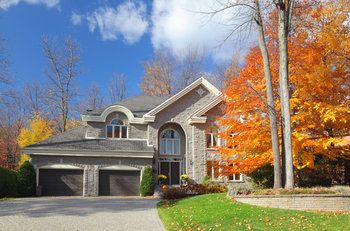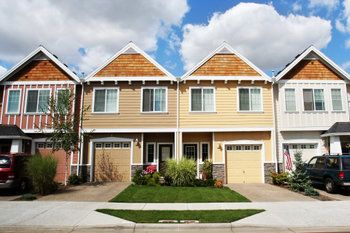 Updated by Craig Berry
Updated by Craig Berry
One of the biggest reasons homeowners invest in U.S. real estate is because of the very favorable tax treatment received.
Not all investments work the same way, however. For example, if you sold $100,000 worth of Microsoft stock and made $60,000, you'd be taxed on that $60,000. This would apply if all you did was turn around and reinvest it in Apple stock (and that stock would have to perform very well to make up for the government snagging $20,000 right off the top).
Fortunately, buying and selling homes for investment purposes doesn't work that way. If you made $60,000 profit on the sale of a property, you could reinvest that money in another property, and defer every penny of tax on the profit, also known as the gain.
What is a 1031 exchange and how does it work?
A 1031 exchange, also known as a "like-kind" exchange, refers to the section of the Internal Revenue Service (IRS) Code that governs it.
Taking advantage of a 1031 exchange is fairly straightforward. When you sell a property, you have to reinvest the proceeds into another qualified property. This can be simultaneously at closing, after the sale of a property (also known as a Starker exchange), or even before the sale of a property (known as a reverse 1031 exchange).
So then what qualifies for a 1031 exchange? An investment property that's known as a like-kind property. For tax purposes, like-kind simply means you must be exchanging one investment property for another. The other investment property doesn't need to be the same type of property, however.
Even though the transaction is referred to as an "exchange," you don't directly trade property with someone else.
1031 exchange rules
Like-kind Property. Fortunately, "like-kind" carries a very broad definition. Both the original and replacement properties must be of the "same nature or character, even if they differ in grade or quality." It can be a farm, a commercial building, or even a mine.
Greater or Equal Value. To completely avoid paying taxes upon the sale of the property, the IRS requires the net market value and equity of the property purchased be the same as, or greater than, the property being sold. This includes the price of the replacement property and all costs of its acquisition. The sales price of the relinquished property is calculated after the deduction of the sales expenses. If you must borrow to buy a property of greater value, you can work with a mortgage lender and/or explore an FHA 203(k) loan to obtain the funds.
Investment or Business Property. 1031 exchanges can only work when you have an investment or business property, not personal property. For example, you wouldn't be able swap your primary residence in Utah for another primary residence in Florida. This answers a common question related to 1031 exchanges: Can you live in a 1031 exchange property? Unfortunately, no.
45-Day Period/180-Day Rule. Investors (or exchangers) must follow a strict 45/180-day guideline. Once the exchanger sellers their property, they have 45 days to identify a property of equal or greater value. Once designated, the closing on the new property must occur within 180 days from the sale of the old property.
No "Boot" allowed. A taxpayer must receive not "boot" in order for the exchange to be completely tax-free. Left over cash from the exchange is known as boot. That cash is taxed as partial sales proceeds from the sale of your property, generally as a capital gain.
Same Taxpayer. This is a straightforward and self-explanatory rule. The name going on the deed when title is received on the replacement property must be the same name that was on the deed that transferred the title of the relinquished property.
How to avoid capital gains tax on real estate
Cars, stocks and bonds are considered capital assets. A home is also considered a capital asset. Capital gains tax on real estate occur when you sell a home for more than you paid.
In effect, with a 1031 exchange you can change the form of your investment without cashing out or recognizing a capital gain. This allows your investment to continue to grow on a tax deferred basis.
There's no limit to how many times or how frequently you can do a 1031 exchange. You can roll over the gain from one piece of investment property to another and another, allowing you to continue to avoid capital gains.
Although your goal is to profit on each swap, you can avoid paying taxes on the profit until you sell for cash many years later, hopefully only paying one tax, and at a long-term capital gain rate. Unlike short-term capital gains tax which is taxed as ordinary income, long-term capital gains can differ as much as 17 percent. This can be a significant amount to the property owner.
Whether you're using the 1031 exchange in your real estate investments or not, there are plenty of opportunities to make money investing in real estate in the U.S. housing market, if you closely watch mortgage rate trends and your local housing market.



